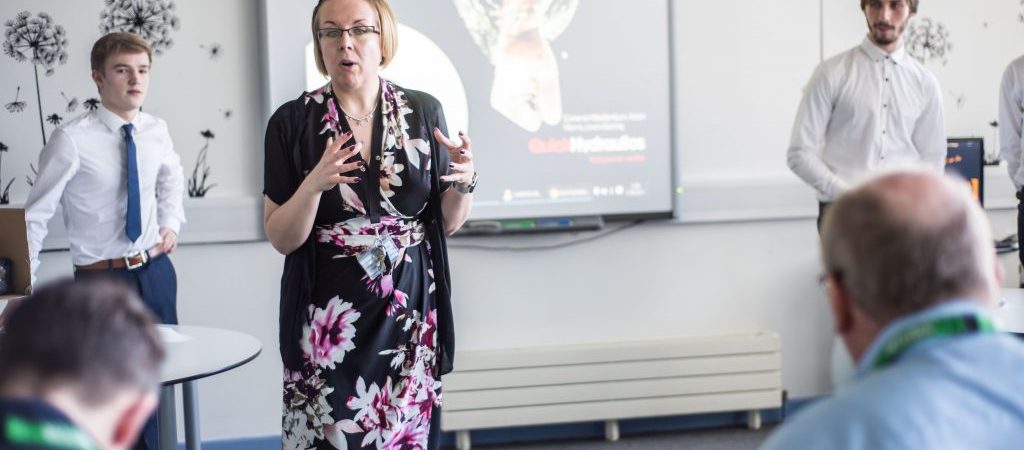
North East LEP careers lead named Career Educator of the Year
The North East man helping to transform the quality of careers education in schools and colleges across the region has been named Career Educator of the Year at the prestigious Career Development Institute UK Career Development Awards.
Ryan Gibson, Facilitator for the Career Benchmarks Pilot at the North East Local Enterprise Partnership, was awarded the title in recognition of his work with the Gatsby Foundation and the delivery of the Good Career Guidance Benchmarks pilot to 16 schools and colleges across the North East.
Designed to improve students’ transition from school to the world of work, the Good Career Guidance Benchmarks provide a clear framework for schools and colleges to deliver effective and quality careers education. Students leave school with the ability to make educated choices about their future career and the skills local employers demand. The programme has been praised by Robert Halfon MP, Minister of State at the Department for Education, and is expected to form part of new statutory guidance for schools in delivering careers advice.
Ryan said:
It’s an honour to be named Career Educator of the Year but I haven’t achieved this on my own.
As well as the team at the North East LEP, we have collaborated with partners across the region who share our ambition to ensure children and young people have access to the best possible careers advice; allowing them to make educated and informed choices about their future.
We’ve worked in collaboration with the education and business sectors, as well as colleagues in local government, to ensure a joined up approach that delivers real results.
The Good Career Guidance Benchmarks pilot has been a huge success in our 16 partner schools and colleges and we plan to make the make the programme available to every secondary school and college in the region. The North East LEP is also looking into expanding the scheme to include Primary schools.
The Government has recognised the value and importance of the work taking place in the North East LEP region and that’s something we’re extremely proud of.
The Career Development Institute UK Career Development Awards showcase and celebrate the very best UK-wide practice in career development. Ryan was recognised as part of the individual best-practice awards.
Michelle Rainbow, Skills for Business Manager at the North East LEP, said:
Ryan is hugely deserving of this award.
He’s led the delivery of the Good Career Guidance Benchmarks pilot in the North East and has been a huge champion for the region, helping position us as innovators in careers education.
As part of Ryan’s role at the North East LEP he has hosted Government visits from Robert Halfon MP, Minister of State at the Department for Education, and spoken at numerous industry events about the success of the Good Career Guidance Benchmarks pilot.
Having previously led careers education and employer engagement for St Joseph’s Catholic Academy in Hebburn, where he successfully reduced NEETs (not in education, employment, or training) to zero, Ryan joined the North East LEP in 2015 to lead the Good Career Guidance Benchmarks pilot. His work has been recognised by the Department for Education as ‘transformational’.


 Catherine Boland, HR Manager at printed.com
Catherine Boland, HR Manager at printed.com
 Enterprise Advisers bridge the gap between business and education, ensuring schools and colleges provide the best possible careers advice and students have an excellent understanding of the opportunities available to them in the North East.
Enterprise Advisers bridge the gap between business and education, ensuring schools and colleges provide the best possible careers advice and students have an excellent understanding of the opportunities available to them in the North East.




 I had the pleasure recently of representing the North East LEP as a keynote speaker at a
I had the pleasure recently of representing the North East LEP as a keynote speaker at a